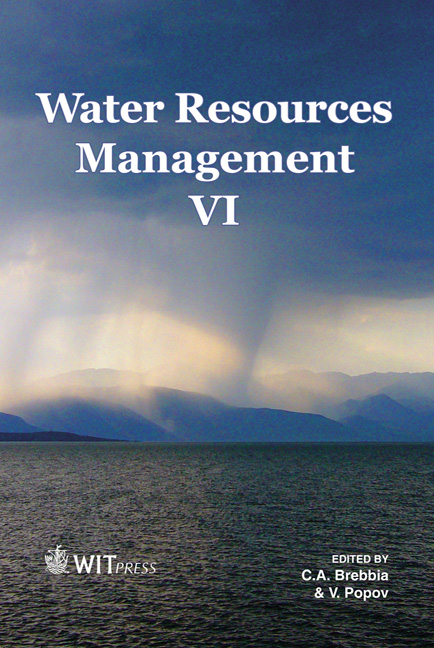Water Quality Analysis At Javary Lake, Rio De Janeiro, Brazil
Price
Free (open access)
Transaction
Volume
145
Pages
11
Page Range
297 - 307
Published
2011
Size
811 kb
Paper DOI
10.2495/WRM110251
Copyright
WIT Press
Author(s)
M. M. Veiga & D. M. Silva
Abstract
Historically, Brazil has suffered from a lack of sanitation infrastructure. Only 42% of all domestic sewage is collected and less than one-third of the sewage collected receives any treatment before final discharge into water bodies. However, these are just the country’s average numbers. In most small Brazilian towns the sanitary situation is even worse. This two-year study analyzed the water quality in Javary Lake, which is the major leisure site for a small tourist municipality located in the mountain region of Rio de Janeiro state, in southeastern Brazil. This water resource has been progressively polluted over many decades due to raw domestic sewage discharges from local residences. In the preliminary phase, we analyzed various parameters in water samples collected from 10 selected points along the shoreline, following the Standard Methods procedures: pH; conductivity; dissolved oxygen (DO); salinity; dissolved solids; biochemical oxygen demand (BOD); chemical oxygen demand (COD); and nitrates. The preliminary results confirmed that Javary Lake is highly eutrophized and polluted with organic materials. In the second phase, we analyzed the nature of the organic materials through coliform bacteria analysis. The results indicated that at 7 out of the 10 selected points the water quality was poor because of high raw sewage content. In fact, the dissolved oxygen levels were similar to those found in facultative lagoons, a type of stabilization pond commonly used for biological wastewater treatment, which have to be drained every 20 to 30 years to maintain their treatment capability. Javary Lake is intensely used by tourists and the local population, for fishing, swimming and boating, among other recreational activities, as well as for animal
Keywords
water quality, sanitation, Brazilian legislation, Brazil





